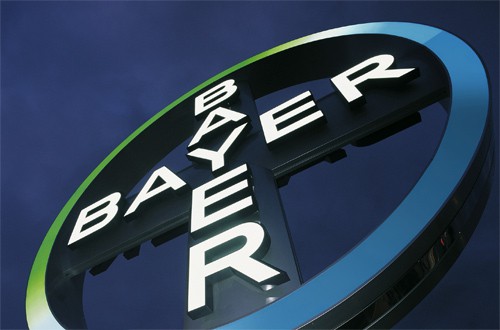
Bayer could claim FDA approval for its follicular lymphoma drug copanlisib within six months, after being awarded priority review status by the US regulator.
The German group filed for approval of the drug – an intravenous PI3K inhibitor – as a third-line treatment for patients with relapsed or refractory FL, the most common type of non-Hodgkin’s lymphoma (NHL) on the basis of the phase II CHRONOS-1 trial.
In the study copanlisib achieved an objective response rate (ORR) of 59%, with durable responses and a median progression-free survival (PFS) that was approaching one year when the data were presented at the American Association of Cancer Research (AACR) meeting last month. Copanlisib is administered as a one-hour infusion on an intermittent weekly basis – three weeks on and one week off.
Bayer is in pursuit of Gilead Sciences’ P13K inhibitor Zydelig (idelalisib), which is already approved for FL and chronic lymphocytic leukaemia (CLL) in the US but hasn’t lived up to its early potential. It’s worth noting that idelalisib targets a single P13K isoform (delta) while copanlisib targets both delta and alpha isoforms, although the clinical significance of that is unclear.
Bayer scientists have suggested that the delta form is involved in B-cell growth, survival and metabolism, while inhibiting the alpha form reduces blood vessel formation in tumours, potentially making its drug useful in solid as well as blood cancers.
First launched in 2014, Zydelig brought in $168m for Gilead over the course of 2016 but has been held back by concerns about its safety – particularly a risk of serious infection – that led to several trials being halted last year and a decision to stop development for first-line therapy. While an EMA review concluded its benefits outweighed its risks last year, sales declined in the first quarter to $35m from $49m a year ago.
That presents an opportunity for Bayer and other companies developing P13K inhibitors for lymphoma, although EvaluatePharma has predicted modest sales of $262m for Bayer’s drug in 2022, particularly as Johnson & Johnson’s BTK inhibitor Imbruvica (ibrutinib) is emerging as a dominant therapy in first-line lymphoma with additional competition for Roche’s anti-CD20 drug Gazyvaro (obinutuzumab).
Meanwhile, other P13K inhibitors coming through the pipeline for lymphoma include TG Therapeutics, whose TGR-1202 candidate is in phase III for CLL, and Verastem’s duvelisib, which hit its primary objective in a phase II NHL study run by originator Infinity and reported last year, but fell short of expectations with an ORR of 46%.
Bayer has early-stage trials ongoing in breast cancer as well as other solid tumours, but on this front is lagging behind Novartis, which has a P13K alpha inhibitor – alpelisib – in phase III trials for breast cancer and mid-stage testing for non-small cell lung cancer (NSCLC) with a filing due in 2019. AstraZeneca was developing AZD8835, a PI3K alpha/delta inhibitor for solid tumours but abandoned the programme last year.




